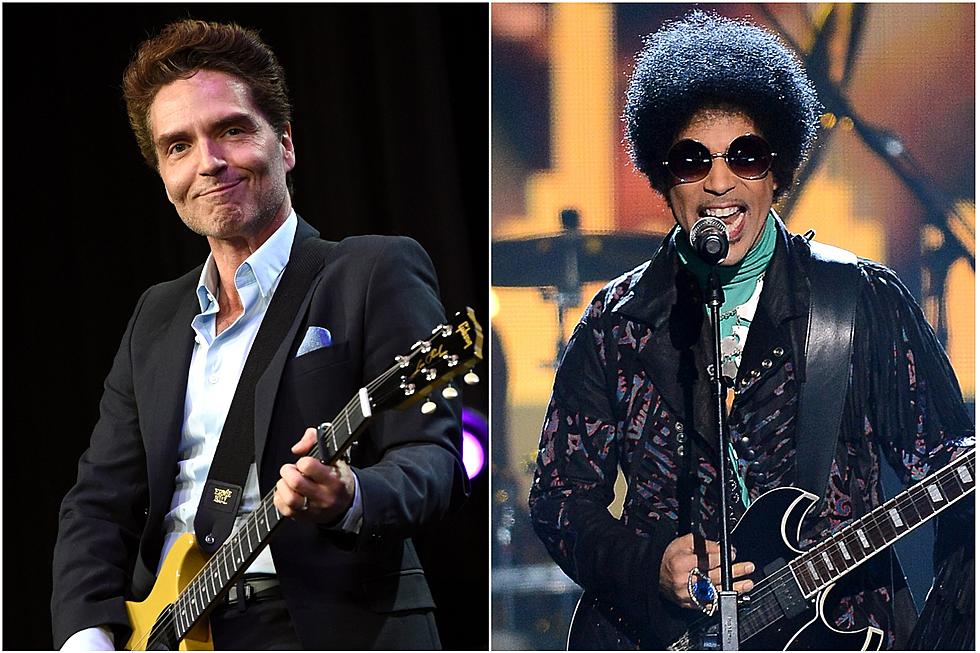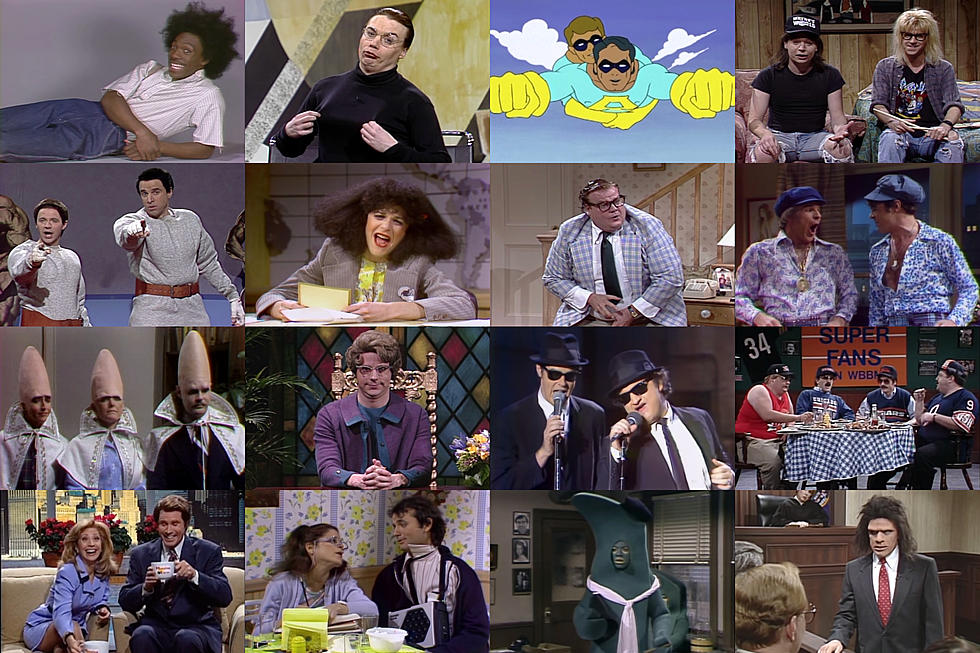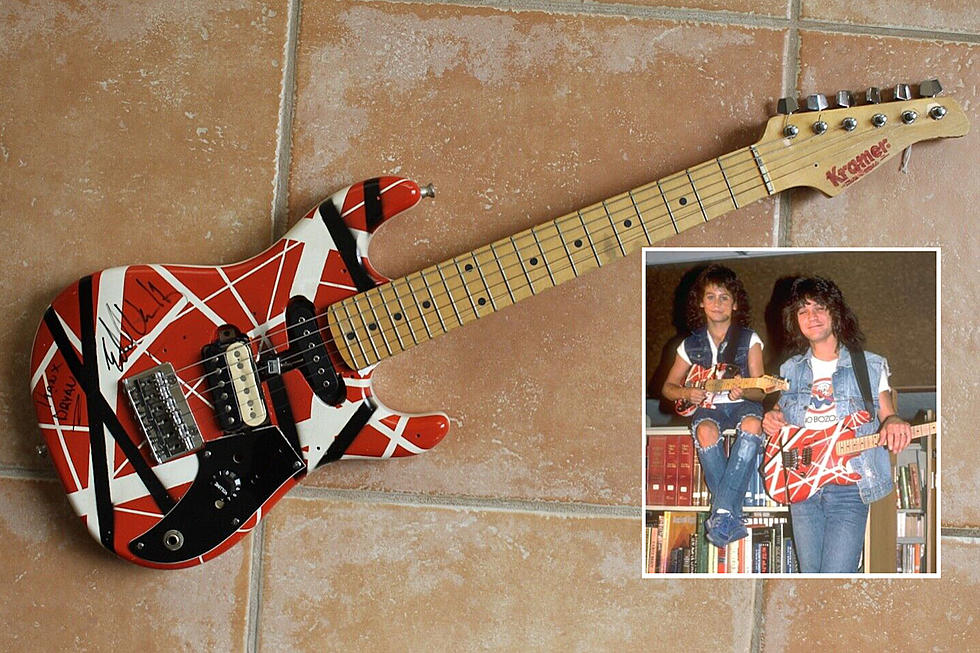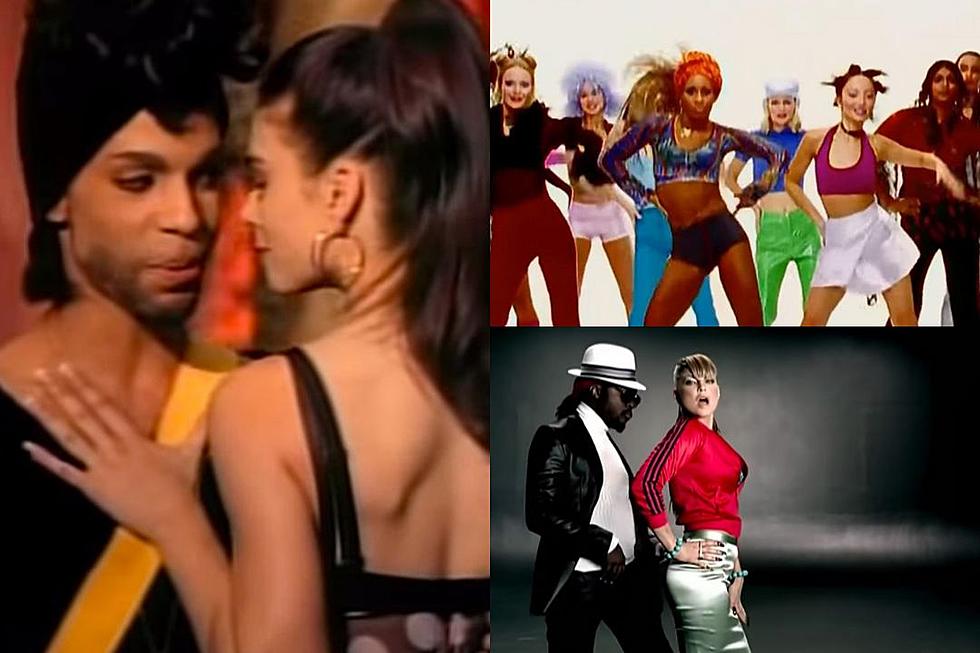
Richard Marx on How ‘Awesome’ Prince Meeting Defied Expectations
In a new UCR video interview, Richard Marx recalls an "awesome" and illuminating encounter with Prince — but as the soft-rock singer explains, he initially expected a tense exchange.
The songwriter's first brush with the Purple One came at a distance, after an '80s-era vocal session for a Fee Waybill solo album at Hollywood's Sunset Sound. As he writes in his newly released memoir, Stories to Tell, Marx spotted "a small lone figure bouncing a basketball in the shadows" on a court outside the studio. "At first I thought it was a child," he writes. "He crouched, raised the ball above his head, and launched it with perfect form at least [25] feet right into the basket. All net. As he walked from the shadows to grab the ball, I realized it was Prince."
As he tells UCR, he only met Prince face-to-face "several years" after that — around the time of Marx's third album — at "legendary" Los Angeles studio the Record Plant, where Luther Vandross and Babyface also happened to be recording.
"We heard that in the back studio Prince was going to be arriving the next day to be there for a couple of weeks," he says. "We were all in there for weeks at a time. The studio management came around our studios and said, 'Look, Prince is going to be starting to record here tomorrow. Don’t look at him, don’t talk to him.' I remember going, “Say what, now?” Are you fuckin’ kidding me? Like, if I pass Prince in the hallway, I’m supposed to not make eye contact or say [hello]?
"I got all fuckin’ riled up, right?" he continues. "And I was like, 'I want to see that motherfucker.' Because I’ll get right in his face and say, 'Who the fuck do you think you are?'”
Marx says days passed without an appearance.
"Nobody sees Prince," he recalls. "I’m going out to lunch one day, and I’m at the front door of the studio. The receptionist says, 'Hey, Richard, there was a call that came in for you.' She’s talking to me, and I’ve got the door open. ... This purple limousine pulls up to the studio. His bodyguard’s name was Chick [Charles 'Big Chick' Huntsberry] — he was this gigantic guy. He gets out of the purple limousine, and then out pops Prince. He’s walking towards the door, and this is all happening to me in slow motion. I’m like, 'Here we go.'"
You can watch the interview below.
Marx continues: "As he gets six feet from me, he looks and sees me, and goes, 'Hey Richard, how are you doin’, man?' I go [with a nervous tone], 'Good.' He goes, 'Yeah, I heard you were recording here. How’s it going? Are you making a new album?' He was so nice and chatting, and I’m going, 'Yeah, yeah, it’s going good. It’s really nice to meet you!'"
After that introduction, Marx realized he'd gotten worked up for nothing. "That was it — and it never had occurred to me that maybe that wasn’t Prince telling people to not look at him or talk to him," he says. "It was his handlers or whatever. He couldn’t have been nicer. I just remember thinking, 'Yeah, Prince is cool. Prince just talked to me.' [Laughs] Prince knew who I was. That was awesome."
Marx also enthuses about his admiration for Prince's artistry, guitar skills and overall versatility.
"What wasn’t impressive? It was all impressive," he says. "To this day, when I look at his catalog — I mean, there’s a lot of stuff that went by me. Some stuff that I caught up with later. But even when he put out stuff that didn’t connect with me, or that I didn’t want to listen to again or would be like, 'That was fuckin’ weird' — I always had this respect and admiration for him just doing whatever he felt like doing.
"And also, knowing that it was him. That was really all him," he continues. "Much like Stevie Wonder before him and only a handful of other people, who go into a room and create top to bottom. It’s one thing for me as a songwriter to be proud of the fact that so many of my songs are music and lyrics by me and no collaboration. I’m proud of playing keyboards on that track or playing guitar on that track or playing the guitar solo on that track, which is rare for me."
Marx says he takes "great pride" in those musical moments, but he "can't even fathom the talent and confidence" it takes to write, perform and produce everything on your own.
"[Prince] was a force of nature," he says. "I don’t think there’s ever been a single human being with more sheer talent than him." And a perfect example, he says, is the artist's iconic guitar solo at the 2004 Rock & Roll Hall of Fame during an all-star cover of the Beatles' "While My Guitar Gently Weeps."
"He just walks out and plays the solo to the end of the song. It’s one of the most brilliant performances, but also, just musically, his choice of notes," he says. "His guitar playing was always flashier in his own music, in my opinion. It was a little bit more acrobatic. When he came out and played on that song, my respect for his musicianship actually somehow increased. Because he was playing melodies and he was playing stuff that it was like ...every so often, I just have to go watch it and listen to what he was playing. He was just amazing."
What Happened to the Artists of Paisley Park Records?
More From My WJLT 105.3










